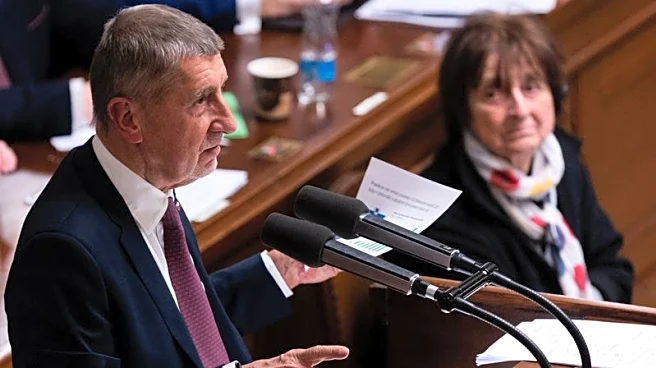What is the story about?
What's Happening?
A group of Senate Democrats, led by Maria Cantwell, has introduced the Student Athlete Fairness and Enforcement Act (SAFE Act), which aims to amend the Sports Broadcasting Act. This legislation would allow college conferences to pool broadcasting rights, potentially increasing the value of their media contracts. The bill, co-sponsored by Senators Cory Booker and Richard Blumenthal, lacks bipartisan support and faces opposition from Senate Republicans, including Ted Cruz. The SAFE Act also includes provisions for athlete transfers, scholarship guarantees, and post-eligibility medical coverage. It seeks to address financial stressors in college athletics by consolidating media rights and ensuring fair revenue distribution among schools.
Why It's Important?
The SAFE Act could significantly impact the financial landscape of college sports by allowing conferences to negotiate media rights collectively, potentially increasing revenue. This change could help smaller schools compete more effectively and maintain scholarship levels for Olympic sports. However, the bill faces challenges, including opposition from key figures like Rep. Steve Scalise and leaders in major conferences like the SEC and Big Ten. The legislation's success could reshape college sports broadcasting and financial structures, affecting athletes, schools, and media companies. The bill's introduction highlights ongoing debates over college sports governance and financial equity.
What's Next?
The SAFE Act's future is uncertain, as it lacks bipartisan support and faces opposition from influential lawmakers. The bill's passage would require overcoming significant hurdles, including potential filibuster challenges in the Senate. If enacted, the legislation could lead to changes in how college sports media rights are negotiated and distributed. Stakeholders, including schools, athletes, and media companies, will likely continue to lobby for or against the bill. The ongoing debate reflects broader tensions in college sports governance and the need for financial reforms to address disparities between schools.
Beyond the Headlines
The SAFE Act's proposal to amend the Sports Broadcasting Act could have long-term implications for college sports. By allowing media rights consolidation, the bill could alter the competitive balance between schools and conferences. The legislation also raises questions about the role of government in regulating college sports and the potential impact on athletes' rights and opportunities. The SAFE Act's introduction amid a potential government shutdown underscores the complex interplay between sports, politics, and economics. The bill's progress will be closely watched by stakeholders across the college sports landscape.














